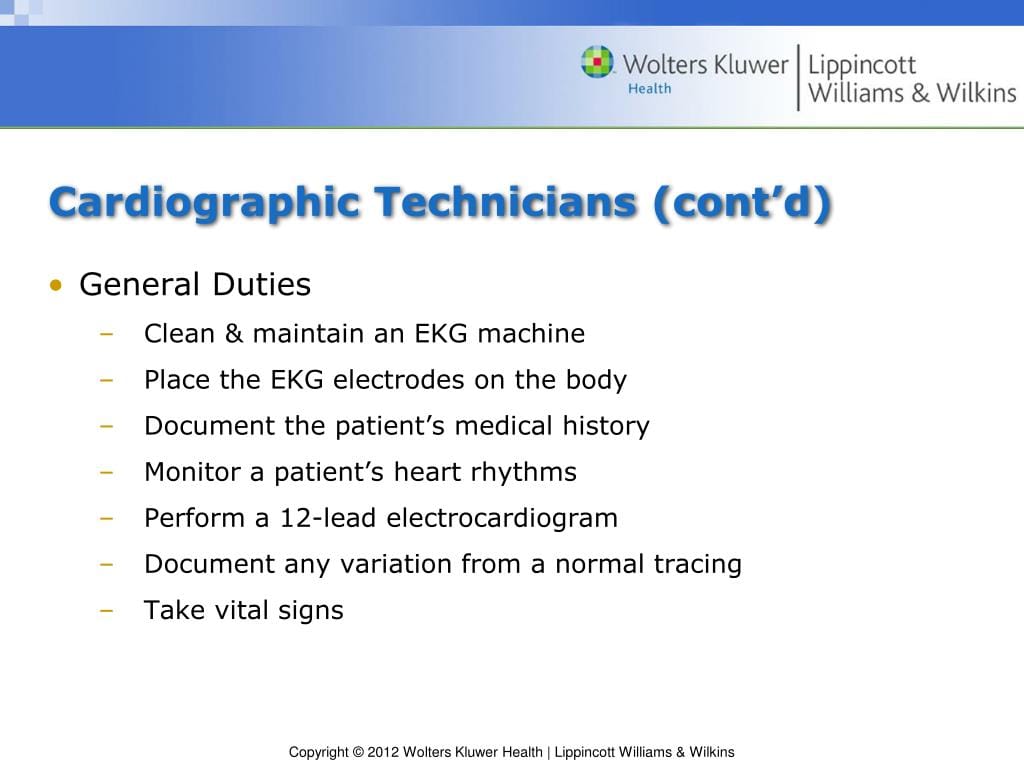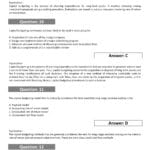Are you fascinated by the heart and its intricate electrical rhythms? A career as a Certified Cardiographic Technician (CCT) might be your perfect fit. This comprehensive guide explores the crucial role CCTs play in cardiology, outlining the path to certification, highlighting essential skills, and providing insights into career prospects.
Decoding the Role of a CCT
CCTs are essential healthcare professionals specializing in cardiovascular technology. They operate electrocardiogram (ECG) machines and other diagnostic equipment to record the heart’s electrical activity. These tests are crucial for physicians to diagnose and monitor various heart conditions, from arrhythmias to potential heart attacks. CCTs work closely with physicians in diverse settings, including hospitals, clinics, specialized heart centers, and sometimes even directly in doctors’ offices. Beyond technical expertise, CCTs often provide patient care, explaining procedures and offering reassurance to those undergoing testing.
Your Journey to CCT Certification
The path to becoming a CCT involves a combination of education, rigorous examination, and a commitment to ongoing learning.
Educational Pathways
While some experienced CCTs might have entered the field through on-the-job training in the past, the current standard typically involves obtaining an associate degree in cardiovascular technology or a closely related field. Programs accredited by the Commission on Accreditation of Allied Health Education Programs (CAAHEP) are often preferred by employers and may be a prerequisite for certain certifications. A strong background in healthcare or medical assisting can also be beneficial. For those with military experience, equivalent training and experience in cardiovascular technology might fulfill the educational requirements. Consult the CCI website and relevant institutions for specific program details.
The CCT Examination
The Certified Cardiographic Technician (CCT) exam, administered by Cardiovascular Credentialing International (CCI), is a crucial step toward certification. This computer-based exam assesses your knowledge and skills across various aspects of cardiovascular technology.
Here’s a breakdown of the exam details:
- Format: Computer-based
- Duration: 2 hours
- Number of Questions: 130 multiple-choice questions (110 scored, 20 unscored for research purposes)
- Content Areas: EKG interpretation, Holter monitoring, stress testing, and fundamental cardiovascular anatomy and physiology.
- Cost: Approximately $175 (Always verify the current fee on the CCI website, as it may be subject to change.)
Debunking the Online Certification Myth
While you might encounter advertisements promoting online ECG or CCT “certification,” it’s crucial to understand that the official CCT credential granted by CCI cannot be earned online. This distinction is vital for maintaining credibility and ensuring you receive proper training and recognition.
Essential Skills for a Successful CCT
Beyond technical proficiency, successful CCTs possess a blend of hard skills and soft skills:
Technical Prowess
- ECG Interpretation: Analyzing ECG readings to identify normal and abnormal heart rhythms.
- Holter Monitoring: Applying and managing portable ECG devices worn by patients for extended periods.
- Stress Testing: Monitoring patients’ heart activity during exercise to assess cardiac function.
- Non-invasive Procedures: Performing cardiac sonography and other non-invasive diagnostic tests.
- (Potential) Surgical Assistance: In some cases, CCTs may assist with invasive procedures such as cardiac catheterization or even open-heart surgery, often in larger hospital settings. Further research can clarify the prevalence of these responsibilities within the typical CCT role or whether they require additional certifications.
The Human Touch
- Patient Interaction: Communicating clearly with patients, explaining procedures, and addressing their concerns with empathy and compassion.
- Teamwork: Collaborating effectively with physicians and other healthcare professionals.
- Adaptability: Staying current with evolving technologies and procedures through continuing education.
Charting Your Career Path: Outlook and Earning Potential
The demand for skilled CCTs is expected to grow steadily, driven by an aging population and increasing prevalence of heart conditions. This translates to promising job security and ample opportunities for career advancement. While salary varies depending on experience, location, and employer, the median annual salary for CCTs provides a competitive starting point, with potential for growth through specialization and further education. Researching current job outlook data and salary ranges for your specific area can offer a clearer picture.
The Value of CCT Certification
Earning the CCT credential offers several significant advantages:
- Enhanced Job Opportunities: Many employers prefer or require CCT certification, giving you a competitive edge.
- Increased Earning Potential: Certified technicians often command higher salaries than their non-certified counterparts.
- Professional Credibility: Certification validates your expertise and demonstrates your commitment to the profession.
CCT vs. Other Cardiac Certifications
While the CCT certification focuses on electrocardiography and related non-invasive procedures, other certifications within cardiovascular technology exist, such as the Registered Diagnostic Cardiac Sonographer (RDCS). Exploring these different pathways can help you align your career goals with the appropriate specialization.
Beyond the Basics: Further Exploration
To delve deeper into the world of CCT and cardiovascular technology, consider the following:
- CCI Website: The official CCI website (cci-online.org) is your primary resource for accurate and up-to-date information on the CCT exam, eligibility requirements, and application process.
- Connect with Professionals: Networking with practicing CCTs can offer valuable insights and mentorship opportunities.
- Stay Informed: Ongoing research continually shapes the field of cardiology. Continuous learning and professional development are crucial for staying at the forefront of advancements in cardiovascular care.
Conclusion: A Heartfelt Career Awaits
Becoming a CCT offers a rewarding career path for those passionate about healthcare and fascinated by the intricacies of the heart. With the right education, dedicated preparation, and a compassionate approach to patient care, you can embark on a fulfilling journey as a Certified Cardiographic Technician. While challenges may arise, the opportunity to contribute to life-saving diagnoses, work in a dynamic field, and experience the gratification of helping others makes this a career worth exploring.
CNA renewal NC
CMCA certification
- Mastering Leader in Spanish: The Complete Guide - April 19, 2025
- Uncovering Surprising Parallels: England Size Compared to US States - April 19, 2025
- Old Mexico Map: Border Shifts 1821-1857 - April 19, 2025
















